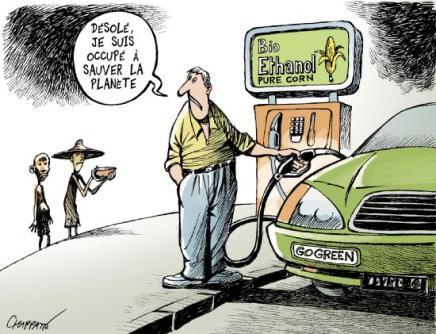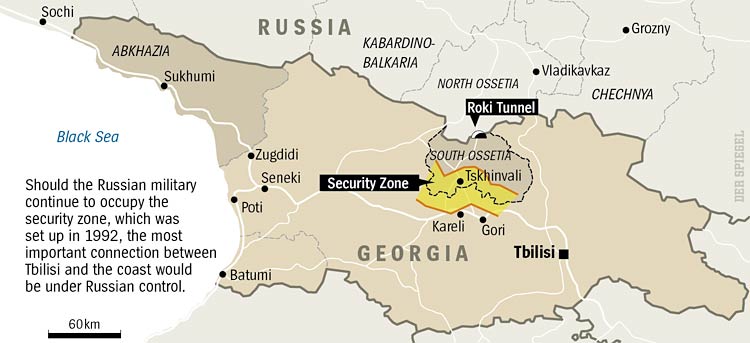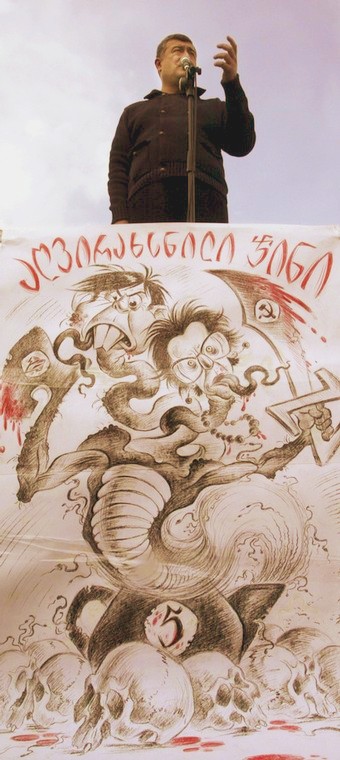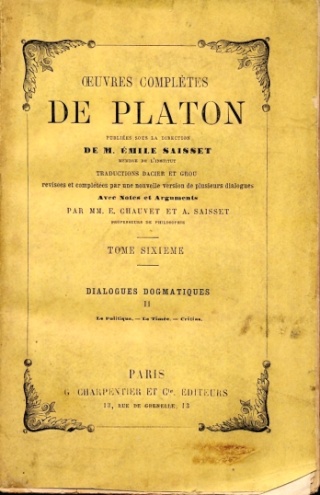
La crise est énorme, 1929 à la puissance X, car cette fois, tout le système financier mondial est impliqué. Et que fait-on, partout? Les pouvoirs publics, de droite comme de gauche, renflouent en urgence le système bancaire. Et pour ce faire, plongent dans les caisses publiques... qu'on n'a de cesse de dire vides à chaque fois qu'un groupe social ou l'autre explique qu'il est sur la paille et n'en peut plus de la "rage taxatoire"
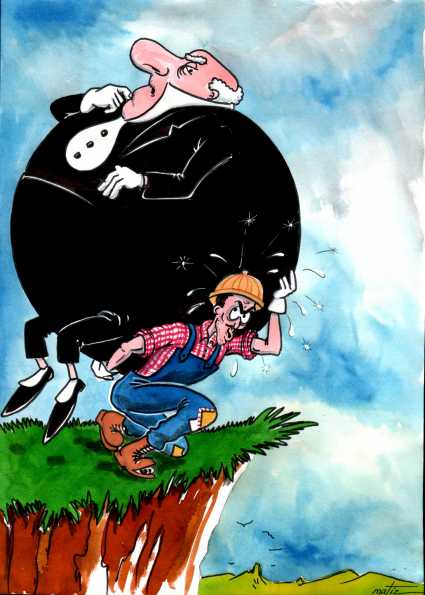
sans verser dans l'extrême opposé (et philosophiquement frère jumeau), le marxisme et toutes ses sous-divisions, on ne peut que constater que dans les faits, il est indéniable que l'on fait supporter par la population les conséquences de l'aventurisme financier et de la rapacité des "élites" et autres boursicoteurs. C'est ainsi qu'on amène les jacqueries et autres émeutes. Au début de l'année, elles ont eu lieu dans les pays frappés par la famine. Mais dans ces pays-là, il existe encore une certaine capacité à retourner cultiver un lopin de terre. Chez nous, tout a été organisé pour la dépendance totale des populations aux groupes industriels de l'agro-alimentaire et pharmacologiques quant à leur alimentation & soins de santé. Nous sommes bel et bien au tout début du grand choc.
http://www.lefigaro.fr/marches/2008/09/30/04003-20080930ARTFIG00359-plongeon-historique-de-wall-street-.php
30/09/2008

Crédits photo : AP
La Bourse de New York a lourdement chuté, après que les places européennes ont accusé le coup de plusieurs déroutes bancaires.
Le scénario catastrophe se réalise. La Chambre des représentants a rejeté hier le plan Paulson, censé sauver le système bancaire américain de l'implosion. Wall Street, pris par surprise, a très mal réagi. L'indice Dow Jones a connu un plongeon historique (en points). Il a reculé de 6,98 %, le Nasdaq de 9,14 % et le S&P 500 de 8,81 %.
Le plan prévoyait l'octroi au Trésor américain de 700 milliards de dollars pour financer un programme de rachat d'actifs bancaires dévalorisés. Hier matin encore, le président Bush avait imploré les députés américains de surmonter leurs doutes à l'égard de ce plan et de se ranger derrière les leaders des deux partis qui s'y étaient finalement ralliés.
Hier soir, le secrétaire au Trésor, Henry Paulson, visiblement frustré par la fronde des élus, a expliqué qu'il continuerait de « travailler avec les législateurs. L'enjeu est trop important pour que l'on abandonne. Nous cherchons le moyen de faire passer quelque chose le plus vite possible ».
La crainte des autorités américaines est désormais que les marchés de crédit soient paralysés du fait du manque de confiance dans la solidité de banques dont les bilans sont accablés de créances immobilières douteuses. « Les marchés de crédit vont se retrouver encore plus paralysés », estimait à chaud Bill Gross, patron de Pimco, le plus grand fonds obligataire du monde. Un tel scénario perturberait gravement le fonctionnement des systèmes de paiement, provoquerait des faillites de banques et d'entreprises et plongerait vite l'Amérique dans une grave récession.
Défections importantes
En quatre jours déjà, deux grands établissements de dépôt, Washington Mutual et Wachovia, ont frisé la faillite. Ils ont dû être repris en catastrophe par des banques en moins mauvaise santé, respectivement JPMorgan Chase et Citigroup. La contagion a aussi gagné l'Europe, où, après la nationalisation de Fortis dimanche soir, des banques sont tombées en Grande-Bretagne, en Allemagne et au Danemark. La franco-belge Dexia va être recapitalisée en urgence.
À Washington, la rancœur est grande. La Maison-Blanche se dit « très déçue ». C'est un énorme désaveu pour le président Bush. En fin de mandat, décrédibilisé par la chute de sa popularité et la détérioration du climat économique, George W. Bush n'avait guère de prise sur les élus frondeurs de son propre parti. Les démocrates qui se sont battus pour le passage de ce plan, pourtant conçu par le secrétaire républicain au Trésor, accusent les républicains de comportement irresponsable. 228 représentants ont voté contre le projet, alors que seulement 205 l'ont approuvé. Les leaders des deux partis avaient appelé leurs troupes à soutenir ce texte qui suscitait un grand scepticisme dans le pays. « Nous n'avons d'autre choix que de travailler ensemble pour trouver un moyen de sauver notre économie », résumait le leader de la minorité républicaine de la Chambre, John Boehner.
Des défections importantes dans les deux camps expliquent cet échec. Mais les opposants au plan Paulson se comptent surtout dans les rangs républicains. À moins de six semaines des législatives, ils jugent que le texte nationalise à un prix exorbitant les pertes de banques irresponsables. Ils doutent de la capacité du plan à relancer effectivement l'offre de crédit en nettoyant les bilans bancaires.
Le président Bush devait se réunir hier soir avec ses conseillers économiques. Ils devaient discuter avec les leaders du Congrès de la possibilité de soumettre le texte, au besoin amendé, à un second vote. Il faudrait toutefois plusieurs jours pour tenter cette option. L'effondrement de Wall Street causé par le premier échec pourrait peut-être convaincre certains élus de changer d'avis.
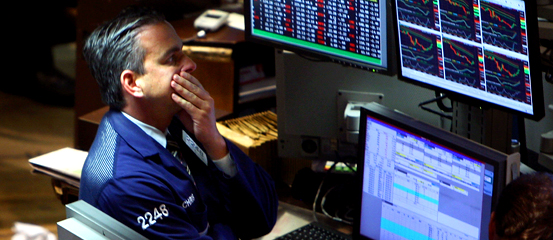
http://news.yahoo.com/s/ap/financial_meltdown;_ylt=AnRsgMebBf8yBN3ahJF8cqqs0NUE
By JULIE HIRSCHFELD DAVIS, Associated Press Writer 12 minutes ago
WASHINGTON - In a vote that shook the government, Wall Street and markets around the world, the House on Monday defeated a $700 billion emergency rescue for the nation's financial system, leaving both parties' lawmakers and the Bush administration scrambling to pick up the pieces. Dismayed investors sent the Dow Jones industrials plunging 777 points, the most ever for a single day.
"We need to put something back together that works," a grim-faced Treasury Secretary Henry Paulson said after he and Federal Reserve Chairman Ben Bernanke joined in an emergency strategy session at the White House. On Capitol Hill, Democratic leaders said the House would reconvene Thursday, leaving open the possibility that it could salvage a reworked version.
Senate leaders showed no inclination to try to bring the measure to a vote before they could determine its fate in the House. President Bush, meanwhile, was scheduled to make a statement on the rescue plan Tuesday morning, the White House said.
All sides agreed the effort to bolster beleaguered financial markets, potentially the biggest government intervention since the Great Depression, could not be abandoned.
But in a remarkable display on Monday, a majority of House members slapped aside the best version their leaders and the administration had been able to come up with, bucking presidential speeches, pleading visits from Paulson and Federal Reserve Chairman Ben Bernanke and urgent warnings that the economy could nosedive without the legislation.
In the face of thousands of phone calls and e-mails fiercely opposing the measure, many lawmakers were not willing to take the political risk of voting for it just five weeks before the elections.
The bill went down, 228-205.
The House Web site was overwhelmed as millions of people sought information about the measure through the day.
The legislation the administration promoted would have allowed the government to buy bad mortgages and other sour assets held by troubled banks and other financial institutions. Getting those debts off their books should bolster those companies' balance sheets, making them more inclined to lend and ease one of the biggest choke points in a national credit crisis. If the plan worked, the thinking went, it would help lift a major weight off the national economy, which is already sputtering.
Hoping to pick up enough GOP votes for the next try, Republicans floated several ideas. One would double the $100,000 ceiling on federal deposit insurance. Another would end rules that require companies to devalue assets on their books to reflect the price they could get in the market.
In the meantime, Paulson said he would work with other regulators "to use all the tools available to protect our financial system and our economy."
"Our tool kit is substantial but insufficient," he said, indicating the government intended to continue piecemeal fixes while pressing Congress for broader action.
Stocks started plummeting on Wall Street even before Monday's vote was over, as traders watched the rescue measure going down on television. Meanwhile, lawmakers were watching them back.
As a digital screen in the House chamber recorded a cascade of "no" votes against the bailout, Democratic Rep. Joe Crowley of New York shouted news of the falling Dow Jones industrials. "Six hundred points!" he yelled, jabbing his thumb downward.
The final stock carnage far surpassed the 684-point drop on the first trading day after the Sept. 11, 2001, terror attacks.
In the House, "no" votes came from both the Democratic and Republican sides of the aisle. More than two-thirds of Republicans and 40 percent of Democrats opposed the bill. Several Democrats in close election fights waited until the last moment, then went against the bill as it became clear the vast majority of Republicans were opposing it.
Thirteen of the 19 most vulnerable Republicans and Democrats in an Associated Press analysis voted against the bill despite the pleas from Bush and their party leaders to pass it.
In all, 65 Republicans joined 140 Democrats in voting "yes," while 133 Republicans and 95 Democrats voted "no."
The overriding question was what to do next.
"The legislation may have failed; the crisis is still with us," said House Speaker Nancy Pelosi, D-Calif., in a news conference after the defeat. "What happened today cannot stand."
Republican leader John Boehner, R-Ohio, the minority leader, said he and other Republicans were pained to back the measure, but in light of the potential consequences for the economy and all Americans, "We need to renew our efforts to find a solution that Congress can support."
Sen. Chris Dodd, D-Conn., said there was scant time to reopen legislation that was the product of hard-fought bipartisan negotiations.
"What happened today was not a failure of a bill, it was a failure of will," said Dodd, the Banking Committee chairman. "Our hope is that cooler heads will prevail, people will think about what they did today and recognize that this is not just scare tactics — it's reality."
A brutal round of partisan finger-pointing followed the vote.
Republicans blamed Pelosi's scathing speech near the close of the debate — which assailed Bush's economic policies and a "right-wing ideology of anything goes, no supervision, no discipline, no regulation" of financial markets — for the defeat. It was not much different from her usual tough words against the president and his party.
"We could have gotten there today had it not been for the partisan speech that the speaker gave on the floor of the House," Boehner said.
Rep. Roy Blunt, R-Mo., the whip, estimated that Pelosi's speech changed the minds of a dozen Republicans who might otherwise have supported the plan.
That amounted to an appalling accusation by Republicans against Republicans, said Rep. Barney Frank, D-Mass., chairman of the Financial Services Committee: "Because somebody hurt their feelings, they decide to punish the country."
More than a repudiation of Democrats, Frank said, Republicans' refusal to vote for the bailout was a rejection of their own president.
Indeed, many GOP lawmakers spurned Bush's urgent calls for action. "We have a gun to our head," said Rep. Ginny Brown-Waite, R-Fla., who opposed the bill. "This isn't legislation — it's extortion."
The two men campaigning to replace Bush watched the situation closely — from afar — and demanded action.
In Iowa, Republican John McCain said his rival Barack Obama and congressional Democrats "infused unnecessary partisanship into the process. Now is not the time to fix the blame; it's time to fix the problem."
Obama said, "Democrats, Republicans, step up to the plate, get it done."
Lawmakers were under extraordinary pressure from powerful outside groups, which gave notice they considered the legislation a "key vote" — one they would consider when rating members of Congress.
The U.S. Chamber of Commerce said opponents of the bailout would pay for their stance.
"Make no mistake: When the aftermath of congressional inaction becomes clear, Americans will not tolerate those who stood by and let the calamity happen," said R. Bruce Josten, the Chamber's top lobbyist, in a letter to members.
The conservative Club for Growth made a similar threat to supporters of the bailout.
"We're all worried about losing our jobs," Rep. Paul Ryan, R-Wis., declared in an impassioned speech in support of the bill before the vote. "Most of us say, 'I want this thing to pass, but I want you to vote for it — not me.'"
"We're in this moment, and if we fail to do the right thing, Heaven help us," he said.
If Congress doesn't come around on a bailout, more pressure would fall on the Federal Reserve.
The Fed, which has been providing billions in short-term loans to squeezed banks to help them overcome credit stresses, could keep expanding those loans to encourage lending. And, it could keep working with other central banks to inject billions into financial markets overseas.
It also has the power to expand emergency lending to other types of companies and even to individuals if they are unable to secure adequate credit.
___
Associated Press writers Jeannine Aversa, Jim Abrams and Andrew Taylor contributed to this report.
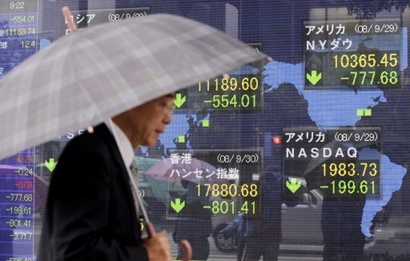
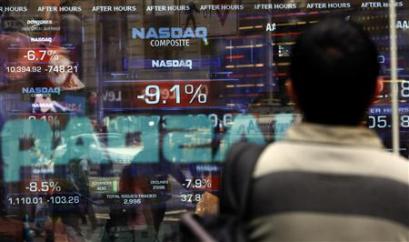
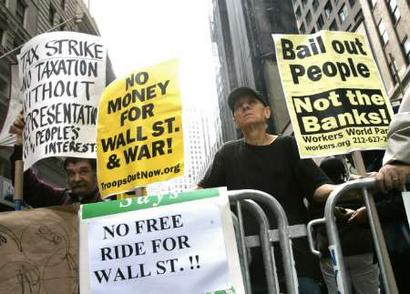

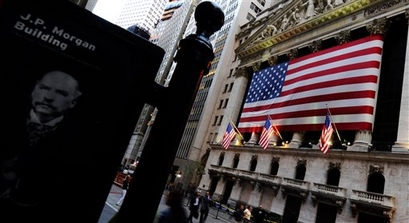 A picture of financier J.P. Morgan is seen across he street from the New York Stock Monday, Sept. 29, 2008 in New York. Wall Street's worst fears came to pass Monday, when the government's financial bailout plan failed in Congress and stocks plunged precipitously, hurtling the Dow Jones industrials down 777.68, or 6.98 percent to 10,365.45, in their largest one-day point drop ever.(AP Photo/Stephen Chernin)
A picture of financier J.P. Morgan is seen across he street from the New York Stock Monday, Sept. 29, 2008 in New York. Wall Street's worst fears came to pass Monday, when the government's financial bailout plan failed in Congress and stocks plunged precipitously, hurtling the Dow Jones industrials down 777.68, or 6.98 percent to 10,365.45, in their largest one-day point drop ever.(AP Photo/Stephen Chernin)photos news.yahoo.com
Stock markets across Asia have fallen sharply, with some losing 3% of their value, after a US financial rescue plan failed to gain Congressional backing.
In a shock move, the US House of Representatives rejected a $700bn (£380bn) plan to bail out Wall Street.
Japan's main Nikkei index was down 3% in afternoon trading. It came after the US Dow Jones index saw its biggest one-day points fall, dropping nearly 7%.
US Treasury Secretary Henry Paulson said it was vital to get a new deal.
Day of turmoil
President George W Bush is to make a statement on the deadlock over the bail-out plan early on Tuesday morning.
But the president has been wholly ineffectual in the crisis so far and it's difficult to see how that might change, says the BBC's North America correspondent Justin Webb.
Congress will not meet again until Thursday, with another vote unlikely before the weekend, the BBC's Jonathan Beale in Washington says.
The House's rejection of the bail-out plan came after a day of turmoil in the US and Europe, with Wachovia, the fourth-largest US bank, being bought by larger rival Citigroup.
In Europe, Benelux banking giant Fortis being partially nationalised by three governments, and the UK lender Bradford & Bingley taken into state ownership.
Now Asia is reacting to the shock, with the Nikkei down 343 points, or 3%, in late trading, after earlier dropping as much as 5%.
Hong Kong's Hang Seng index was down 433 points, or 2.4%, while Australia and New Zealand saw similar losses, with the S&P/ASX-200 index shedding 3.5% in Sydney and a 3.4% fall in Wellington.
South Korea, the Philippines and Singapore also lost ground.
In Mumbai, the main Indian share index fell 3.3% in early trading.
'Big impact'
World leaders expressed concern at the effect of the US vote.
"It will have a big impact on the US economy, and it will also greatly affect the global economy," said Japanese Economics Minister Kaoru Yosano.
Australia's Prime Minister Kevin Rudd said he had spoken to his British counterpart Gordon Brown and they agreed to urge the US Congress to reverse Monday's decision.
"The attitude that we will adopt... is to urge the United States Congress to pass this or a similar measure when it is represented to the Congress later this week," said Mr Rudd.
Earlier, Brazilian President Luiz Inacio Lula da Silva accused the US and other wealthy nations of financial irresponsibility that could jeopardise the economic progress made in recent years by developing countries.
Brazil's Ibovespa stock index dropped 9.4% on Monday.
Washington blockade
The US rescue plan, a result of tense talks over several days between the government and lawmakers, was rejected by 228 to 205 votes in the House of Representatives.
About two-thirds of Republican lawmakers refused to back the rescue package, as well as 95 Democrats.
Treasury Secretary Henry Paulson said, after talks with the president, that the government's plan to address the crisis facing the US financial sector was much too important to be allowed to fail.
US regulators would use "all the tools available" to help the US economy, but their powers were "insufficient", he warned.
He added that he would be working with congressional leaders to get something done "as quickly as possible".
Analysts say that without a bail-out plan, the banks will be left to handle all their own bad mortgage debt as best they can and more of them will be in danger of going bust.
But after several hours of impassioned debate, the bill's opponents - the majority of whom were from the Republican Party - got their way.
They had raised concerns about both the content of the plan and the speed with which they were being asked to pass it.
Blame game
The no vote plunged the world of Washington politics into turmoil, reports the BBC's Kevin Connolly from the US capital.
So grave are the consequences of this decision, our correspondent says, that the speaker of the house paused for several long minutes after the vote was taken before declaring it official.
"The legislation has failed, the crisis has not gone away," said Nancy Pelosi, the house's Democratic speaker.
She said that 60% of Democrats had supported the bill, and urged both sides to try again to find a resolution.
"We must work in a bipartisan way in order to have another bite at the apple in terms of some legislation," she said.
Republican leaders, meanwhile, criticised a scathing speech by Ms Pelosi about the Bush administration's economic policies for injecting partisanship into the issue and scuttling the vote.
Republican house leader John Boehner said: "We could have gotten there today had it not been for the partisan speech that the speaker gave on the floor of the House".
Republican presidential hopeful John McCain accused Democrats of infusing the debate with an unhelpful partisan approach.
"Now is not the time to fix the blame, it's time to fix the problem," he added.
He urged members of Congress to go back to the drawing board "immediately" and work out a new deal.
His Democratic rival Barack Obama countered that it was an outrage that ordinary people were being asked to clean up Wall Street's mess.
"If I am president I will review the entire plan on the day I take office to make sure that it is working to save our economy and (that) you get your money back," he said.
He added that he expected Congress to pass a bail-out bill in some form.
 A présent c'est au tour de la "banque des municipalités et communes", Dexia, produit de la fusion des banques française et belge spécialisées dans le prêt aux collectivités locales, dont le financement est capital pour la vie sociale locale? Il serait intéressant que puissent s'exprimer 2 de ses administrateurs belges, le président du parti socialiste du sud du pays & bourgmestre de Mons, m. Elio di Rupo (gauche), et m. Serge Kubla, un des principaux membres du Mouvement Réformateur, le pendant francophone belge de l'UMP en France (droite). Il ne faut pas tomber dans la complotite aiguë, mais il faut rester réaliste : cela fait des mois et des mois que les difficultés de Dexia sont connues, que la fiabilité/viabilité du groupe est plus que mise en doute. Rien de concret n'a été fait jusqu'à présent. On attendait, nous présumons, que le système financier mondial soit suffisament effondré pour pouvoir "faire passer la pilule" de l'injection d'argent public - les impôts de France, Belgique et Grand-Duché du Luxembourg - dans des banques qui ont été mal gérées, mais pas pour tout le monde. On aimerait connaître la somme que les actionnaires auront à verser...
A présent c'est au tour de la "banque des municipalités et communes", Dexia, produit de la fusion des banques française et belge spécialisées dans le prêt aux collectivités locales, dont le financement est capital pour la vie sociale locale? Il serait intéressant que puissent s'exprimer 2 de ses administrateurs belges, le président du parti socialiste du sud du pays & bourgmestre de Mons, m. Elio di Rupo (gauche), et m. Serge Kubla, un des principaux membres du Mouvement Réformateur, le pendant francophone belge de l'UMP en France (droite). Il ne faut pas tomber dans la complotite aiguë, mais il faut rester réaliste : cela fait des mois et des mois que les difficultés de Dexia sont connues, que la fiabilité/viabilité du groupe est plus que mise en doute. Rien de concret n'a été fait jusqu'à présent. On attendait, nous présumons, que le système financier mondial soit suffisament effondré pour pouvoir "faire passer la pilule" de l'injection d'argent public - les impôts de France, Belgique et Grand-Duché du Luxembourg - dans des banques qui ont été mal gérées, mais pas pour tout le monde. On aimerait connaître la somme que les actionnaires auront à verser...http://www.actu24.be/article/belgique/plongee_catastrophique_pour_dexia/194923.aspx
Ce lundi matin, vers 9H30, l'action de Dexia a chuté de 24,73 pc (7,62 euros) sur Euronext Bruxelles à l'ouverture de la bourse. Depuis le début de l'année 2008, elle a perdu 55,77 pc de sa valeur.
"L'Etat belge est prêt à soutenir également la banque franco-belge Dexia, comme elle l'a fait avec Fortis, en cas de difficultés", indiqué aujourd'hui le ministre belge des Finances Didier Reynders, alors que le cours en Bourse de Dexia est en très forte baisse.
Dexia a réuni dimanche un conseil d'administration par téléphone afin d'évaluer la situation dans le cadre de la tourmente vécue par le bancassureur belgo-néerlandais Fortis, a confirmé lundi Ulrike Pommée, porte-parole de Dexia.
"Des temps de crise"
Selon le site du quotidien français Le Figaro, qui cite "certaines sources", le groupe bancaire franco-belge pourrait annoncer prochainement une augmentation de capital pour reconstituer ses fonds propres et rassurer les marchés.
"A cet effet, ses principaux actionnaires, des communes belges et la Caisse des dépôts et consignations, côté français, seront sollicités", croit savoir le journal français.
La porte-parole, ne souhaitant pas commenter l'article du Figaro, insiste néanmoins sur le fait que l'activité de Dexia et sa position de capital sont bonnes. "Il est évident qu'en ces temps de crise, nous restons très attentifs à l'évolution de la situation", ajoute-t-elle.
(Avec Belga)

http://www.lalibre.be/economie/actualite/article/449214/64-milliards-d-euros-pour-dexia.html
Mis en ligne le 30/09/2008
Ni le plan de sauvetage des banques américaines, ni celui de Fortis n'ont rassuré les boursiers. Le titre du groupe belgo-néerlandais a rebondi avant de retomber en Bourse. Dexia s'est enfoncée à son tour en attendant du cash.
S'il fallait d'autres déroutes boursières pour que l'opinion publique comprenne que la crise financière qui a fait trébucher Fortis ne se limite pas en Europe à notre ex-vedette des guichets, on n'en a pas été privés lundi à la reprise des affaires courantes.
Après un week-end de gestion de crise menée par le gouvernement belge avec des représentants des gouvernements voisins, et des huiles de la BCE, et après le sauvetage de Fortis par le biais d'une "sorte" de nationalisation tripartite de la banque qui est imbriquée dans le tissu économique du Benelux, on rêvait d'une pause, et même d'un rallye des actions Fortis en Bourse. Partie remise, apparemment. Hier, l'action Fortis a piqué du nez pour terminer la journée sur une chute de 23,71 pc à 3,97 euros. Mais cette fois, elle a été dépassée à la baisse par le titre du groupe franco-belge Dexia. On soupçonnait, ici, l'annonce imminente d'une augmentation de capital révélée par le "Figaro". Comme d'autres acteurs du monde bancaire l'on fait récemment, le groupe financier réputé pour une communication proactive depuis le début de la crise du subprime ne s'est pas étendu sur la question. En début de journée, il a réfuté tout problème de liquidité et refusé de confirmer les informations de presse. Un conseil d'administration était toutefois convoqué lundi à 18 heures. En attendant une communication plus rassurante, le titre Dexia a passé la journée à évoluer 30 pc sous son cours de vendredi, pour terminer à 7,07 euros, en baisse de 29,65 pc. Une catastrophe pour les actionnaires.
En outre, comme ce fut aussi le cas pour Fortis vendredi, avec l'intervention musclée de Didier Reynders assurant les clients de Fortis du soutien du gouvernement belge, la ministre française de l'Economie Christine Lagarde y est allée de sa déclaration à propos du groupe franco-belge. "La Caisse des dépôts (11 pc du capital de Dexia), bras financier de l'Etat français, prendra ses responsabilités en tant qu'actionnaire" de Dexia, a-t-elle déclaré. "Je suis en contact étroit avec mes collègues belges", a-t-elle encore ajouté. Inquiétant ? Evidemment. D'autant plus que Didier Reynders se disait prêt, dans la foulée, à apporter son aide à Dexia. Pendant ce temps, on apprenait que la banque danoise Roskilde Bank, en faillite à la suite de la crise financière internationale, mise sous tutelle par la banque nationale, était rachetée par trois instituts financiers danois. Le gouvernement islandais a lui aussi volé au secours de la troisième banque du pays, Glitnir, qu'il a nationalisée lundi à 75 pc, une mesure présentée comme provisoire pour aider un secteur vital pour l'économie de l'île nordique. "Le gouvernement, via la Banque centrale d'Islande, fournira 600 millions d'euros (84 milliards de couronnes islandaises) à Glitnir et détiendra 75 pc des actions de Glitnir", a annoncé le bureau du Premier ministre dans un communiqué. Cette mesure est destinée à aider la banque confrontée à "des difficultés temporaires de liquidités" dans un contexte de crise financière internationale, explique-t-il. Un discours qui aurait une fâcheuse tendance à se banaliser... En Allemagne, la banque Hypo Real Estate a pour sa part décroché in extremis une ligne de crédit auprès d'un consortium de banques allemandes, lui permettant d'éviter la faillite.
Aux Etats-Unis, la quatrième banque américaine, Wachovia, a été aussi rayée de la carte lundi, rachetée par Citigroup sur intervention de l'administration Bush. Enfin, toutes les banques centrales importantes ont allongé des liquidités pour tenter d'enrayer la crise qui s'amplifie.

http://www.lalibre.be/economie/actualite/article/449165/haro-sur-les-dirigeants-de-fortis.html
Malgré un certain soulagement, le ressentiment des internautes ne s'est pas relâché tout au long de la journée de lundi.
Vous pouvez désormais faire vos commentaires à propos d'un article dès qu'il est "posté" sur notre site lalibre.be. Inutile de dire que, malgré l'heure tardive dimanche, cela a chauffé. Lundi matin, les commentaires restaient marqués par une vive colère à l'égard des dirigeants de Fortis, alors que certains louaient la réaction des autorités publiques. Revue.
"FORTIS A FLOUÉ L'ÉTAT ET L'ÉTAT RENFLOUE FORTIS. Jusqu'à vendredi : pas de panique voyons ! Nous avons la situation bien en mains. Il est beau le résultat de leurs mensonges, de leurs erreurs monumentales et de leur suffisance. Ces messieurs sont à l'abri et nagent dans leurs millions. Ils ne devront par-dessus le marché jamais rendre de comptes". (MJB)
"PERSONNELLEMENT, JE TROUVE QU'ON DEVRAIT LAISSER TOMBER FORTIS. BNP Paribas a fait une offre "insuffisante", alors bien sûr les actionnaires forts de leur parachute (l'État-providence, c'est-à-dire nous) peuvent se permettre de refuser. On brandit le libéralisme pour dire que les profits individuels (plantureux) sont justifiables, mais dès qu'il s'agit de pertes, alors là, il faut mutualiser.". (Bugger)
"LA BARONNIE FORTIS VOIT SON ARROGANCE INOUÏE sanctionnée par le marché. Désolé, je suis revanchard : Cher JP VOTRON, où êtes-vous avec vos 4 000 000 € de cash de départ, tandis que - déjà - les primes de fin d'année du personnel étaient annulées ! Il faut relire vos déclarations de 2008 à la lumière de ce jour : de la schizophrénie... Votre seule excuse c'est de ne pas avoir été seul : toute la haute direction était dans la même situation. Je vous ai lu parlant de valeurs, citant Johnny Hallyday et Justine Henin, alors, remboursez !" (B. Gracian - Ixelles)
"À RELIRE, À LA LUMIÈRE DE L'ACTUALITÉ DU JOUR, l'interview de Votron justifiant son salaire : "Avec le rachat d'ABN Amro, nous entrons dans un nouveau cycle. C'est une acquisition majeure qui a été reconnue par le monde entier comme exceptionnelle. C'est logique que cela se reflète dans la rémunération." (SGZ)
"LES BANQUIERS NE SONT PAS DES EXPERTS. Ils sont tout simplement cyniques et cupides. Ils savent très bien que toutes les grandes crises financières du XXe siècle ont la même origine. Quand se tarissent les sources d'argent qui reposent sur le travail et les investissements dans les outils de production, il faut trouver d'autres sources et entraîner les petites gens dans l'aventure. Le risque est mieux réparti, mais les petites gens ne sont pas fiables. Ils doivent acheter de l'énergie rendue brutalement trop chère à cause de la spéculation, ils deviennent chômeurs, ils tombent malades, ils font des bébés, ils divorcent. Pour faire court, ils ont chacun une bonne raison de ne plus investir parce qu'ils doivent continuer à vivre".
"COMME TOUJOURS, BEAUCOUP DE COMMENTAIRES CRITIQUES, acerbes et désabusés. Je n'ose pas imaginer ce que ces mêmes personnes auraient dit si l'État avait laissé sombrer Fortis. "Honte d'être belge ?" Ah mais cette fois, les Hollandais et les Luxembourgeois sont dans le coup aussi. Et eux, c'est bien connu, ils ont de bons gouvernements et des ministres compétents..." ( Jojo )
"IMAGINEZ UN INSTANT CE QUE LA GESTION DE CETTE CRISE aurait donné avec un gouvernement démissionnaire... Ceci prouve que Leterme a fait le bon choix en choisissant la gestion du pays plutôt que son cartel. Et ce n'est pas un De Wever qui aurait été à la hauteur. Allez, Messieurs Dames de Leterme 1er, on continue le boulot et prouvez aux indépendantistes étriqués que vous méritez notre confiance !" (Debi)
"EN 1993, LA MOITIÉ DU CAPITAL de la Caisse générale d'épargne et de retraite (CGER) est revendue par l'État belge au groupe FORTIS. En 1998, le solde est également vendu à FORTIS. Une institution publique créée par le libéral Frère-Orban en 1865 était ainsi privatisée. En 1993 et en 1998, M.Maystadt (PSC) était ministre des Finances d'un gouvernement Social-Chrétien/Socialiste. En 1998, M. Di Rupo (PS) était ministre de l'Économie et avait eu durant les années précédentes la charge des entreprises publiques. À l'époque, il refusait le terme de privatisation, lui préférant celui de consolidation !" (D. Rotru - Hyon)
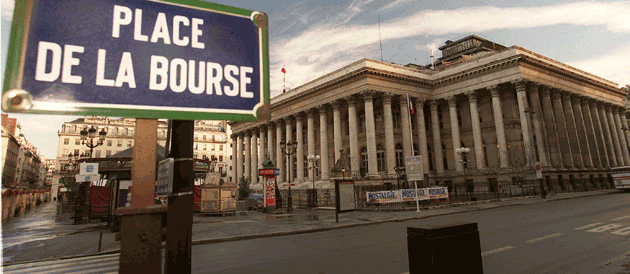
http://www.lalibre.be/economie/actualite/article/449183/lundi-noir-pour-les-banques-europeennes.html
Mis en ligne le 30/09/2008
Fortis n'est pas un cas isolé. Les gouvernements britanniques et allemands ont aussi sorti les parapluies. Sarkozy convoque une réunion européenne.
Avis de tempête sur les banques européennes. Les répercussions de la crise financière qui a secoué les Etats-Unis commencent à ébranler le Vieux continent, où les banques centrales et les gouvernements sortent les parapluies pour éviter au système bancaire européen d'être à son tour noyé sous les faillites. Les coups de tonnerre se sont en effet multiplié, ce lundi, annonçant l'imminence de l'orage.
Le cas du Belgo-néerlandais Fortis, sauvé par une intervention des pays du Benelux est loin d'être isolé. Après avoir partiellement nationalisé Northern Rock, en février, les autorités britanniques ont remis le couvert, lundi, pour empêcher Bradford et Bingley de mettre la clé sous le paillasson. Londres reprendra les activités des crédits immobiliers de la banque britannique, le réseau de détail étant cédé à l'Espagnol Santander. En Allemagne, un consortium de banques privées a jeté une bouée de sauvetage à Hypo Real Estate, lui accordant une ligne de crédit de 35 milliards d'euros, garanti par l'Etat, pour lui éviter de couler. Au Danemark, enfin, la banque Roskilde, a été rachetée par trois instituts financiers.
Au soir de ce lundi noir, chacun de se demander : à qui le tour ? Après Fortis, c'est à présent le groupe franco-belge Dexia de susciter l'inquiétude (lire p.2). Tandis que la Commerzbank, deuxième banque allemande, a dévissé de 17 pc à Francfort.
Sarkozy bat le rappel
Face aux risques d'effet domino, le président français Sarkozy, qui dirige également le Conseil de l'UE, bat le rappel des troupes. Sur le plan domestique, il a convié les principaux groupes bancaires et d'assurance français à faire le point sur la crise, mardi.
Sur le plan européen, le locataire de l'Elysée a annoncé sa volonté de réunir les quatre pays européens du G8 (France, Royaume-Uni, Allemagne et Italie), le président de la Commission José Manuel Barroso, celui de la Banque centrale européenne Jean-Claude Trichet et le chairman de l'Eurogroupe Jean-Claude Juncker. "La situation appelle des réactions rapides, chacun doit faire preuve de sang-froid et de sens des responsabilités", a déclaré le Français. M. Sarkozy s'est félicité que les pays du Benelux, le Royaume-Uni et l'Allemagne soient "intervenus pour assurer la sécurité et la stabilité des marchés financiers de leur pays et donc de l'Europe. Nous ne devons pas céder devant la déstabilisation, il faut soutenir nos banques". La crise bancaire fera également l'objet de l'attention des dirigeants des Vingt-sept, lors du sommet européen des 15 et 16 octobre.
Au-delà des préoccupations conjoncturelles, il faut répondre "au problème structurel", soutient encore M. Sarkozy. Qui a confirmé l'appel qu'il avait lancé depuis la tribune des Nations unies pour la tenue d'un sommet international dans les prochaines semaines "pour fonder les bases d'un nouveau système financier international".
Avis de tempête sur les banques européennes. Les répercussions de la crise financière qui a secoué les Etats-Unis commencent à faire sentir leurs effets sur le Vieux continent, où les banques centrales et les gouvernements ont sorti les parapluies pour éviter que le système bancaire européen soit à son tour noyé sous les faillites.
Les coups de tonnerre se sont multiplié, ce lundi, annonçant l'imminence de l'orage. Le cas du bancassureur belgo-néerlandais Fortis, sauvé par une intervention des pays du Benelux est loin d'être isolé et c'est à présent au tour du groupe franco-belge Dexia de faire l'objet de sérieuses inquiétudes (lire p.2).
Après avoir partiellement nationalisé Northern Rock, étranglée par la crise américaine du subprime, en février dernier, les autorités britanniques ont remis le couvert, lundi, pour empêcher Bradford et Bingley de mettre la clé sous le paillasson. Londres reprendra les activités des crédits immobiliers de la banque britannique, tandis que son réseau de détail est cédé à une filiale de l'Espagnol Santander.
En Allemagne, un consortium de banques privées a jeté une bouée de sauvetage à Hypo Real Estate, lui accordant une ligne de crédit de 35 milliards d'euros, garanti par l'Etat, pour lui éviter de couler. Au même moment, la Commerzbank, seconde banque allemande a perdu 17 pc à la Bourse de Francfort, après avoir pourtant assuré pouvoir faire face à ses besoins jusqu'à la fin de l'année. Au Danemark, enfin, la banque Roskilde, a été rachetée par trois instituts financiers.
Au soir de ce lundi noir, chacun de se demander : à qui le tour ?
Face aux risques d'effet domino sur le système financier européen, le président français Sarkozy, qui dirige également le Conseil de l'Union européenne, bat le rappel des troupes.
Sur le plan domestique, il a convié les principaux groupes bancaires et d'assurance français à faire le point sur la crise mardi. Sur le plan européen, le locataire de l'Elysée a annoncé sa volonté de réunir les quatre pays européens membres du G8 (France, Royaume-Uni, Allemagne et Italie), le président de la Commission européenne José Manuel Barroso, celui de la Banque centrale européenne Jean-Claude Trichet et le chairman de l'Eurogroupe Jean-Claude Juncker.
"La situation appelle des réactions rapides, chacun doit faire preuve de sang-froid et de sens es responsabilités", a déclaré le Français. M. Sarkozy s'est félicité que les pays du Benelux, le Royaume-Uni et l'Allemagne soient "intervenus pour assurer la sécurité et la stabilité des marchés financiers de leur pays et donc de l'Europe. Nous ne devons pas céder devant la déstabilisation, il faut soutenir nos banques".
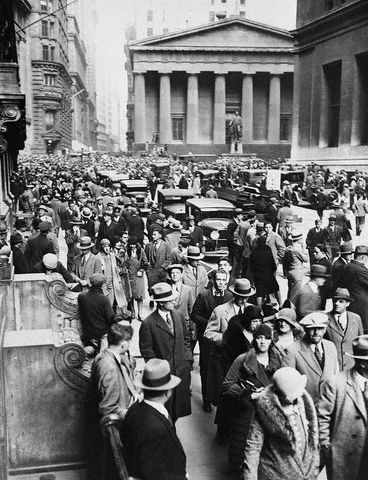
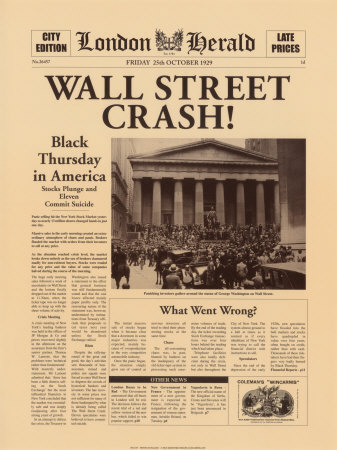
 Car sleepers in California, hard hit by the housing crisis
Car sleepers in California, hard hit by the housing crisisBy Rajesh Mirchandani
BBC News, Santa Barbara
Santa Barbara boasts a classic laidback California lifestyle, with uncongested beaches, wholesome cafes and charming Spanish-style architecture.
Of course there's a hefty price tag: nestled between the gentle Santa Ynez mountains and the inviting Pacific Ocean are multi-million dollar homes.
But in this sun-washed haven of wealth, many live far from the American dream.
In a car park across the street from luxury mansions, the evening brings a strange sight.
A few cars arrive and take up spaces in different corners. In each car, a woman, perhaps a few pets, bags of possessions and bedding.
Across the street from homes with bedrooms to spare, these are Santa Barbara's car sleepers.
Homeless within the last year, they are a direct consequence of America's housing market collapse.

Car sleeper Bonnee still works in the real estate business
4x4 homes
In this woman-only parking lot, Bonnee, who gives only her first name, wears a smart blue dress and has a business-like demeanour.
A year ago, she was making a healthy living as, ironically, a real estate agent. But when people stopped buying houses, her commission-based income dried up, and, like many clients, she too was unable to pay her mortgage.
Soon she found herself with nowhere to live but her 4x4.
Piles of blankets are in the back of the vehicle. Personal documents are stuffed into seat pockets. Books litter the back seat. A make-up bag and gym membership card (she washes at the gym) are in the front. With her constantly, are photos of her former life.
She can't quite believe her situation.
"My God, America's heart is bleeding," she tells me.
Tears fill her eyes.
"I know it'll get better. But it feels sad. I really fought hard."
A medium-sized 4x4 pulls into the parking lot and 66-year-old Barbara Harvey gets out.
She opens the back door and two large Golden Retrievers jump out.
Barbara begins her nightly routine. She moves a few bags from the boot to the front seat and takes out pyjamas and a carton of yoghurt (her dinner). She then arranges blankets in the back of the car.
Barbara used to work in housing finance - this is the double whammy of the housing collapse where many who worked in the sector lost their jobs and their homes.
But since April, she and her dogs, Ranger and Phoebe, have spent every night in her car. It's cramped, but she says if they sleep diagonally they can all fit.
New trend?
The car park lets the car sleepers enter from 7pm, local public toilets close at dusk.
As a result, Barbara says she doesn't drink any liquids after she arrives. In the mornings, she showers at a friend's house.
Dressed in clean, comfortable clothes and wearing sunglasses, she is far removed from the stereotypical image of homelessness.
"I don't think I fit into anybody's image," she says.
"There's going to be lots of homeless individuals who are middle-class, there can't be anything but. We're in an awful mess economically. I don't think we've seen half of what's going to happen in this country."
This new phenomenon of middle-class homelessness is hard to quantify, but New Beginnings, an organisation that runs the car park sleeping scheme in Santa Barbara, says they accommodate some 55 people in a dozen parking lots.
Outreach worker Nancy Kapp, once homeless herself, says there is a waiting list for car park spaces and she is getting more and more calls each day from people about to lose their homes.
She identifies it as a new breed of homeless emerging in America.
'American nightmare'
"Being poor is like this cancer, and now this cancer is filtering up to the middle-class," she says. "I don't care how strong you are, it's a breakdown of the human psyche when you start to lose everything you have."
"These people have worked their whole lives to have a house and now it's crumbling and it's in ashes and how devastating is that?" she says.
"It's not an American dream, it's an American nightmare."
California house prices fell by 30% in the year to May. Few parts of America have been hit as hard.
But national housing groups say they have seen a rise in homelessness across the US since the foreclosure crisis began last year.

The Miller family feel "cramped" in their small mobile home
In another car park in Santa Barbara, Craig Miller, his wife Paige and their two children say they feel cramped in the small mobile home where they have been living for several months.
"It's hard to keep things clean," says Paige. "It's hard to feel complete and whole."
Originally from Florida, the family used to own a four-bedroom house with a pool. But when Craig's business failed, they lost it.
Undeterred, the family embarked on a dream to drive across America and make a new start in California. But unable to find full-time work, and unable to afford rent, as Craig puts it "we got stuck".
He says it was like a holiday at first but now it is much harder.
"Getting money for food, it's not something we've had to think about before," says Craig.
"We're definitely looking forward to getting out and getting a place. And we're working hard at getting there. This is just the journey, it's not the destination.'
As darkness falls on Santa Barbara, the car sleepers settle in for the night.
They'll have to be up early: they are not allowed to stay in the car parks beyond 7am. Some work, others spend their days driving from one spot to another.
When evening comes around again, they return to their car park homes.
In comparison to other countries, and indeed America's own long-term homeless, they are still fortunate.
But as America's economic crisis deepens, could there soon be more of them?
it's an American nightmare
Nancy Kapp
Outreach worker for car sleepers
Prenez un enfant
et faites-en un roi
Couvre-le d'or et de diamants
Cachez-vous en attendant
Vous n'attendrez pas longtemps
Les vautours tournent autour de l'enfant
Le blé a les dents acérées
Et les hyènes vont le dévorer
Le môme deviendra banquier
Ou le môme sera lessivé, lessivé
[Refrain] :
Je dis, argent, trop cher,
trop grand
La vie n'a pas de prix
Prends ton meilleur ami,
fais-en un ennemi
Je t'achète et je te vends
Vautré dans le coma
du commun des mortels
Mon pote, t'es comme un rat,
t'es commun, c'est mortel
Les vautours tournent autour
toujours
Criez NON a l'esclavage
Et payez-leurs
de nouvelles cages
Faites installer des pièges
Là où commence la rage,
la rage
[Refrain]
Un compte bloqué,
l'autre a découvert
Maintenant, banque !
Les vautours tournent autour
de nous maintenant
Tu en as, tu n'en n'as pas
Tu n'as pas vraiment le choix
Un mur de briques devant toi
Il est temps, dépense-toi,
dépense-toi
[Refrain]


